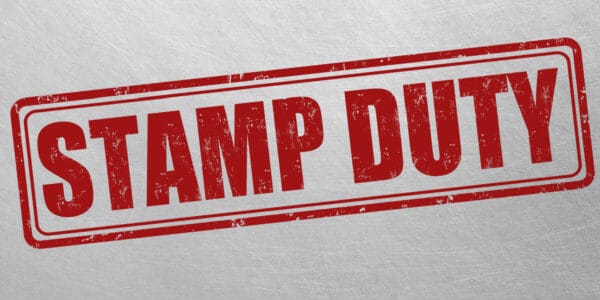New changes are being implemented in 2025 which means the way small companies (including micro-entities) file their annual accounts with Companies House will be changing.
In this article, we look at the new filing requirements and impact they will have on small businesses. Let’s get started.
What changes are being made?
Two main changes are being introduced:
1. Paper filing of annual accounts is being stopped
You will no longer be able to file annual accounts via paper with Companies House. You will also not be able to use Companies House WebFiling or CATO (Company Accounts and Tax Online), the Companies House and HMRC joint filing service.
Instead, annual accounts must be delivered through pre-approved software. See here for a list of software that Companies House has tested.
For companies that must use the paper filing method because their accounts are complex, Companies House is upgrading its upload facility so that it can handle zip files (this is expected to go live in 2024).
2. Small companies and micro-entities must provide profit and loss information
Small companies will need to include profit and loss accounts (something not previously required) as part of their annual accounts, plus a director’s report.
Micro-entity companies will also need to include profit and loss accounts (again, something not previously required) as part of their annual accounts; however, a director’s report will not be necessary (but is optional).
The option for companies to file abridged accounts will be removed. Whilst dormant company accounts will still be permitted for companies that have not taken part in any trading activity, these must be accompanied by a statement that confirms the company qualifies for an audit exemption.
What is a small company?
When it comes to filing annual accounts, a company is classified as a small company if it meets two of the below criteria:
- It has a turnover of £10.2 million or less
- It has £5.1 million or less on the balance sheet
- It has 50 employees or less
What is a micro-entity?
A company is classified as a micro-entity if it meets two of the below criteria:
- It has a turnover of £632,000 or less
- It has £316,000 or less on the balance sheet
- It has 10 employees or less
As these figures would suggest, the majority of the Companies House public register is made up of small companies and micro-entities.
When are the annual account changes taking place?
The annual account updates are being introduced in phases.
The current expectations are that the profit and loss account requirements for small companies and micro-entities will be introduced in early 2025 (secondary legislation with more detail will be issued before this).
Software-only account filing is expected to come into force by the middle of 2025.
Why are these changes being made by Companies House?
The changes make up part of The Economic Crime and Corporate Transparency Act (ECCTA).
The Act aims to ‘improve transparency over UK companies and other legal entities in order to strengthen our business environment, support our national security and combat economic crime, whilst delivering a more reliable companies register to underpin business activity.’
Software-only account filing is a more traceable, secure, and reliable method when compared to paper filing. Plus, it’s more sustainable. The majority of companies already use software filing, so making it compulsory shouldn’t cause too many problems.
The requirement for small companies and micro-entities to ‘open up’ and file profit and loss accounts is being implemented to remove the element of disclosure that has, arguably, previously appealed to fraudsters. It will also enable other businesses to be more diligent regarding who they do and don’t operate with, as more financial information will be available.
However, critics argue that this is simply adding another task to the to-do list of the UK small business owner, and could result in larger companies taking advantage of their smaller counterparts, as they will gain more financial insight.
How Quality Company Formations can help
All companies must file annual accounts whether or not they are trading. The deadline for filing annual accounts is 9 months after the end of the company’s financial year. However, the first set of accounts after incorporation is due 21 months after the date of incorporation.
There are penalties in place for late filing, with fees increasing depending on how late you are.
If you require assistance in filing your company’s annual accounts, we can help.
If your company is trading
We have partnerships in place with several accounting software providers who can help deliver your annual accounts to Companies House, including Iris and Xero (both of which appear on the Companies House list of tested accounting software).
To opt-in to these accounting solutions (if you are a QCF customer):
- Log in to your Client Portal
- Select ‘My Companies’
- Select your company name
- Select the ‘Getting Started’ tab located at the top of the page
- You will be presented with your accounting software options
- Select ‘Add to Cart’ next to the provider that you are interested in
- Complete the checkout process (no payment is required)
You will then receive an email with more information and a dedicated link to help you get started.
If your company is not trading
We offer a Dormant Company Accounts Service (available for only £49.99 +VAT), where our company experts will take care of everything for you.
So, there you have it…
Thanks for reading. We shall keep you updated on the latest developments regarding these changes.
Please leave a comment if you have any questions and we’ll get back to you as soon as possible.
Please note that the information provided in this article is for general informational purposes only and does not constitute legal, tax, or professional advice. While our aim is that the content is accurate and up to date, it should not be relied upon as a substitute for tailored advice from qualified professionals. We strongly recommend that you seek independent legal and tax advice specific to your circumstances before acting on any information contained in this article. We accept no responsibility or liability for any loss or damage that may result from your reliance on the information provided in this article. Use of the information contained in this article is entirely at your own risk.












Join The Discussion